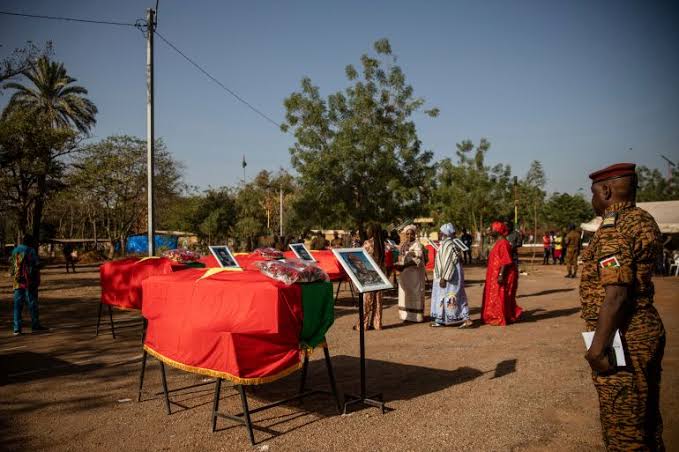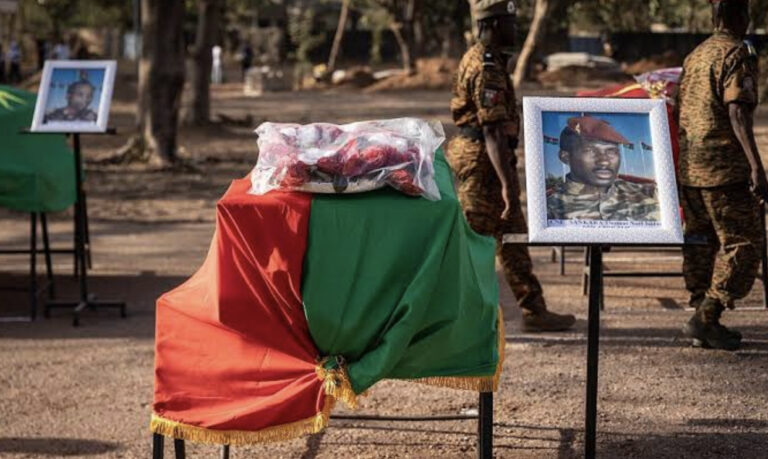Burkina Faso’s revolutionary leader Thomas Sankara’s body was buried on Thursday with 12 of his comrades, three decades after they were slain in a coup.
The ceremony was attended by Apollinaire Joachim Kyélem de Tambèla, Prime Minister of Burkina Faso.
Sankara took power as a 33-year-old army captain in August 1983.
Nicknamed Africa’s Che Guevara, he was a fiery Marxist-Leninist who blasted the West for neo-colonialism and hypocrisy.

He changed the country’s name from the colonial-era Upper Volta to Burkina Faso – “the land of honest men” – and pushed through a range of reforms, including promoting vaccination and banning female genital mutilation.
Sankara was idolized by followers of pan-Africanism and egalitarianism, but his presidency was brief.
A murder squad assassinated him and a dozen other leaders at a meeting of the ruling National Revolutionary Council in the capital, Ouagadougou.
The assassinations occurred on the same day that Sankara’s comrade-in-arms, Blaise Compaore, seized power.
He went on to rule for 27 years, during which time talking about Sankara’s death was strictly forbidden. Protests from the public drove him from office in 2014.
After Compaore’s downfall, the 13 bodies were exhumed from a cemetery on the outskirts of the city for an investigation.
It led to a lengthy trial that culminated in April 2022 with life terms in absentia for Compaore and the suspected hit squad leader, and a similar term for a detained general who had been army commander at the time.
In light of this trial, the 13 should be buried “honourably,” the government said previously.

